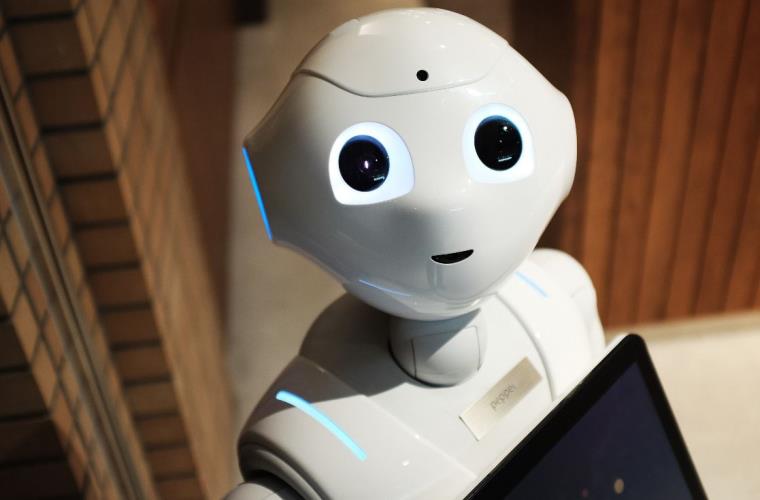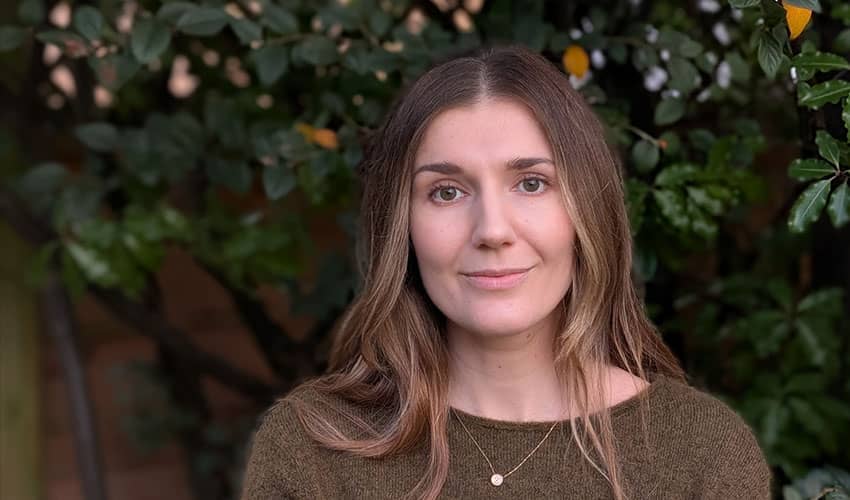Partnership will explore use of robots to improve patient care

Robots could soon become an even more common sight at Southmead Hospital under a partnership to explore their potential to enhance patient care.
North Bristol NHS Trust (NBT) and the Bristol Robotics Laboratory at the University of the West of England (UWE Bristol) are collaborating on the development of robotics and other healthcare technology to improve patients' health and hospital experience.
Southmead Hospital is one of the most technologically advanced hospitals in Europe, with robots conducting cancer surgery, dispensing pharmacy medicines, transporting supplies, and analysing blood samples.
Under the partnership, NBT will consider how emerging technologies, such as artificial intelligence, machine learning, and socially and physically assistive robots, could be used to better support patients.
For example, socially assistive robots could give post-operative patients on wards personalised guidance to regularly eat, drink and exercise, helping them to recover physically and mentally in conjunction with their therapy team.
Robots connected to smart sensing devices could also be used to help patients recover in the comfort of their own homes. They in future may also be able to assist nurses and doctors back at Southmead when extra treatment or a visit is needed.
Professor Praminda Caleb-Solly, leading research in Assistive Robotics and Intelligent Health Technologies at Bristol Robotics Laboratory, said: “Southmead is one of the UK's pioneering hospitals in its approach to technology, with robots already in use to transport supplies and support more efficient surgical procedures. This partnership will build on that impressive work. By bringing together the university's research expertise and the hospital's clinical expertise we can create a leading centre for healthcare technology.
“Robotics can enable a more effective use of the existing workforce, allowing humans to give the human contact and robots to be used as smart tools to support and complement their work. As such, they can improve the value that is added beyond what is currently available.”
North Bristol NHS Trust Clinical Director for Anaesthesia, Surgery, Critical Care and Renal, Mr Tim Whittlestone, said:
“We have an ageing population requiring ever more complex treatment.
“Technology gives our growing workforce massive opportunities to manage this and improve care.
“Robots can help us do some of the more mundane, repeatable tasks and free up staff to do what they do best – listening, thinking and caring.
“They can also analyse data, helping us to really personalise treatment, care and recovery.
“There are constant developments so we need work out how patients and staff interact with the technology and whether it's useful.”
NBT/UWE Health Technology will be a partnership to design, develop and deploy healthcare technologies. These will include assistive, rehabilitation and medical robots with smart sensing and digital health devices. The partnership will trial technology with patients and care staff, leverage benefits of shared facilities, and support and facilitate joint research and learning.
Southmead Hospital Charity recently funded a new second robot now conducting keyhole surgery for a range of cancers. This follows years of robotic prostate cancer surgery which has been more accurate, been less invasive, caused less blood loss, and reduced hospital stay from three days to one.
Twelve automated guided vehicles (AGVs) transport food, linen, medicines and other supplies around the hospital 24/7. Steered by GPS and operating lifts, they have quickened deliveries to wards and reduced injuries to porters.
The hospital's pathology lab uses automated technology to move and test blood samples, after they are transported underground via pneumatic tube from wards. The hospital's pharmacy also uses three automated robots to sort and select medicines for dispensing by pharmacists.
Clinicians are also exploring the introduction of an algorithm to predict seasonal variations in admissions to the Emergency Department, as well as AI-assisted reading of breast mammograms and decision-making on prostate cancer.
The partnership will also see hospital staff support academic research projects. The Bristol Robotics Laboratory team looks forward to seeking joint funding to further develop assistive robotic systems such as CHIRON, which is being designed to support older adults with mobility and other ageing-related impairments. By being able to accommodate emerging technology such as this at Southmead Hospital, staff will be able to play a central role in shaping the design and safety testing the technology, thus accelerating its development and ensure it fits in with clinical procedures and practices. The robot could eventually assist with anything from bringing a tray of food or drink to a patient whenever they wanted, to helping those with mobility issues to their feet and practise walking to aid their recovery.
Professor Caleb-Solly said: “Hospitals are likely to be the first adopters of this type of technology so it will be beneficial to test our prototype in a hospital setting and work with hospital staff in shaping it. Through this partnership, we can have a more clinically-informed focus to our research and make it more relevant to the specific needs of the patients and NHS staff.”
Related news

16 February 2026
UWE Bristol researchers awarded grant to explore impact of asset recovery on offenders
UWE Bristol academics have been awarded funding to explore of the impact of asset recovery on deterring offender behaviour and disrupting crime networks.

10 February 2026
Work by UWE Bristol lecturer features in Government’s National Cancer Plan
Work by a UWE Bristol academic has been included in the Government’s National Cancer Plan.

23 January 2026
On-demand minibus services beneficial in rural areas but face financial challenges, trials suggest
Trials of ‘demand responsive transport’ minibus services boosted connectivity for people in rural and suburban areas, according to a new report produced by UWE Bristol researchers.

18 December 2025
UWE Bristol professor appointed National Institute for Health and Care Excellence CEO
Jonathan Benger CBE, Professor of Emergency Care at UWE Bristol, has been appointed as the new chief executive officer of the National Institute for Health and Care Excellence (NICE).

17 December 2025
Findings revealed from first UK study into experiences of mothers who are survivors of rape pregnancy
UWE Bristol academics have revealed the findings of the first UK-based study of the experiences of mothers who are survivors of rape pregnancy.

11 December 2025
Social media influencer work is far more demanding than it looks, research finds
A study exploring the mental health impacts of social media influencer work has revealed that life online is far more demanding than it appears.

25 November 2025
UWE Bristol experts join film Q&A exploring music and melodrama
Academics will take part in the Cary Comes Home Festival, with a post-screening Q&A exploring music, melodrama and emotional storytelling in classic cinema.

17 November 2025
Urgent reform needed to support ambulance-delivered end of life care, study finds
More than three quarters (78 per cent) of paramedics sometimes fear doing the wrong thing when caring for people in the last year of life, new research has found.

13 November 2025
Bristol’s screen industry experiences “boom-and-bust cycle” after post-pandemic recovery, new research from UWE Bristol finds
New research from UWE Bristol provides detailed insight into Bristol's screen sector.

13 November 2025
New AI research to revolutionise animal welfare
A UWE Bristol research project will combine behavioural science and AI to create technology that understands not only what animals do, but how they feel.

10 November 2025
Lessons from Low Traffic Neighbourhoods will drive better public engagement, study finds
Lessons from Low Traffic Neighbourhoods have informed a new toolkit to improve engagement with the public on challenging local street issues.

06 November 2025
First-of-its-kind study aims to help more people spend their final days at home
A new study will explore how architectural design could support end-of-life care in domestic settings.






